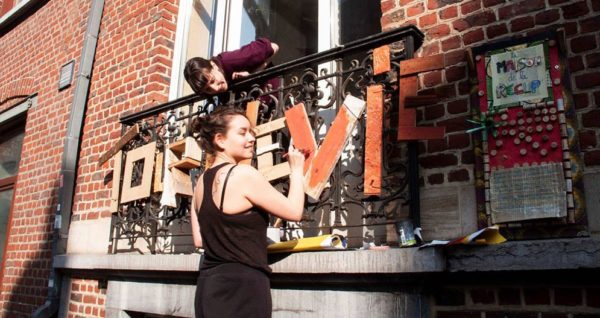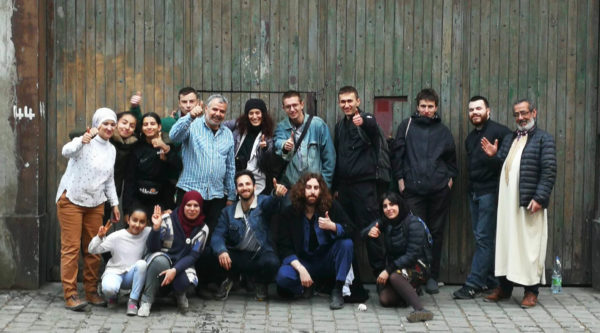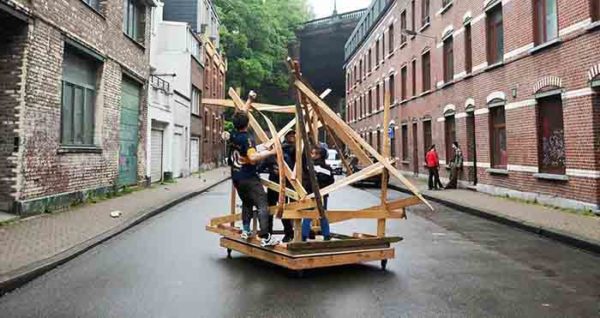Transitional urbanism
is the temporary occupation of empty buildings. The purpose is to have an impact on the city in the
long term.
Urban Context
In Brussels, there are more than 6 million square meters of unused space, which is the equivalent of the surface area of the municipality of Ixelles! On top of this, there are thousands of people looking for decent and affordable spaces to live in or set up initiatives.
To dig deeper into the issue (texts in French): 1 & 2.
Create places where synergies emerge
In these temporary occupations, we initiate housing solutions (we're talking about collective housing and insertion through housing) and allow the emergence of projects of common interest (whether they are social, cultural, or pertaining to the social economy).
Bringing together different uses under the same roof aims to facilitate the meeting of people, the pooling of resources, and the undertaking of common projects.
An eminently circular economy
Communa creates something new with the existing: it revalorizes unused buildings, rehabilitates them with reclaimed materials, and rediscovers the potential of the existing architecture. Transitional periods become a lever to rethink traditional planning processes, overcome standardized spaces, and save resources.
A participatory urbanism
The creation of the uses of a place happens progressively through meetings with residents and local associations. It involves identifying issues to which the temporary occupation can respond and elaborating a program that actively listens to its community. The ambition is to allow citizens to participate in the making of their city.
For a long term impact
The purpose of the transitional periods is to experiment with uses, evaluate their scope and transpose them into the final development projects. It is a question of extending our efforts beyond the temporary period: either by influencing the future projects of the occupied buildings or by becoming managers of the sites through collective acquisition.

Temporary occupation, an ephemeral but indispensable means
In the form of an agreement, temporary occupation allows an owner to entrust the management of their unused property to another person. The practice makes it possible to respond to urban needs within timeframes that the public authorities cannot accommodate. While temporary in nature, these solutions must be accompanied by structural changes to resolve the housing crisis and structural inequalities in our cities.
To achieve this mission, Communa practices different trades. The ASBL coordinates transitional sites, facilitates the implementation of projects carried out by other organizations, and federates initiatives to strengthen the transitional urbanism practice.







